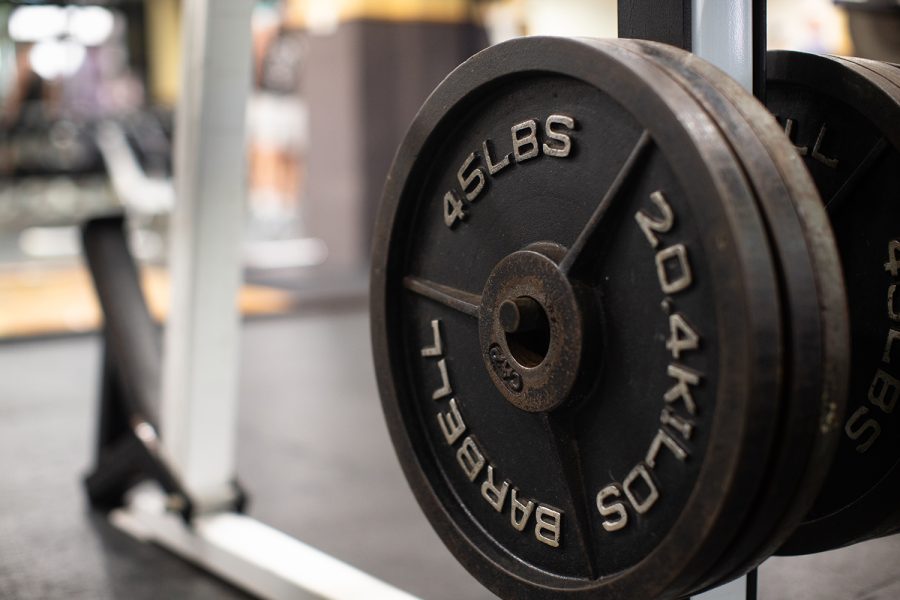Carver College of Medicine to hold bench press competition to fight domestic violence and housing insecurity
The University of Iowa Carver College of Medicine will be holding a bench press competition to raise funds for the Domestic Violence Intervention Program and Shelter House.
Weighted plates are seen at Fitness East Recreational Facility at the University of Iowa on Thursday, Oct. 14, 2021. (Gabby Drees/The Daily Iowan)
October 14, 2021
The Carver College of Medicine is holding a fundraiser to combat domestic violence and housing insecurity in a unique way –– a bench press competition.
The McCowen and Bean learning communities, groups of UI medical students, are holding a bench press competition to raise money for the Domestic Violence Intervention Program and Shelter House.
The event, which took place last year as a pushup competition over Zoom, is back in person at the Medical Education Research Facility on Oct. 29.
Jacob Schroeder, a second-year student at the Carver College of Medicine, who is helping run the event, said the collaboration between the learning communities was inspired by a year of abnormal fundraisers due to the COVID-19 pandemic.
“We thought, since we had the opportunity with rates going down and vaccination becoming widely available, we could work together to put on a really nice event and get the community more involved than we have in the past,” Schroeder said.
The event is especially topical this year with the pandemic’s effects on domestic violence and housing insecurity.
Alta Medea-Peters, Domestic Violence Intervention Program director of community engagement, said hotline calls have increased by 28 percent since May of 2020. She said the program has had a large increase in funding requests for housing and shelter.
Christian Henriksen, a second-year Carver College of Medicine student helping to run the event, said even if it is out of the ordinary, the activity will bring awareness to domestic violence.
“Beyond the event itself, you’re helping one of these great organizations,” Henriksen said.
“DVIP is providing advocacy for victims of domestic violence. I can’t overstate how important that is.”
Schroeder said that signing up for the bench press competition is the primary way to get money into the pockets of the Domestic Violence Intervention Program and Shelter House.
He said that members of the community can also assist the cause by simply showing up, buying food from the food trucks, and purchasing raffle tickets.
The event, while peculiar on the surface, does start a conversation, which Medea-Peters says is the best way to curb the spread of domestic violence.
“The number one way that victim survivors find out about services is through word of mouth,” Medea-Peters said. “Talking about power and control in relationships, doing prevention education starting with even elementary-age kiddos is absolutely key to moving the conversation.”
Medea-Peters said a common misconception about domestic violence is that it is something that happens outside of their personal bubble. She said 95 percent of domestic violence victims are financially abused in addition to the other types of abuse.
Another misconception is that domestic violence has to be physical, she said.
“There are three types of intimate partner violence,” Medea-Peters said. “Obviously physical is one of them, but emotional and financial abuse are often longer-lasting and more traumatic.”



